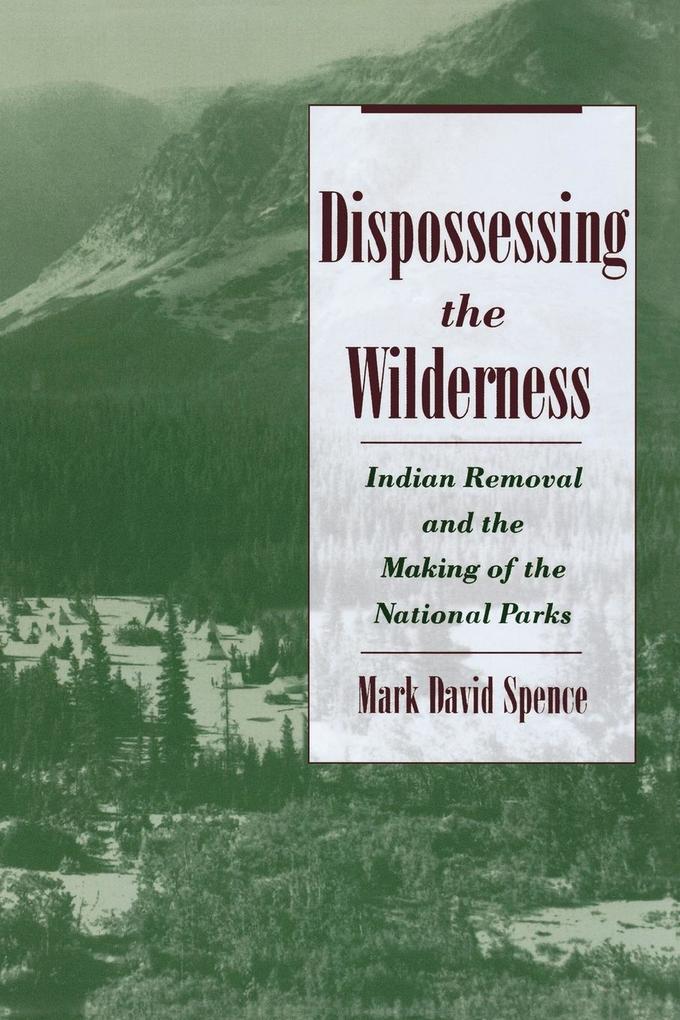
Zustellung: Sa, 19.07. - Mi, 23.07.
Versand in 5 Tagen
VersandkostenfreiBestellen & in Filiale abholen:
National parks like Yellowstone, Yosemite, and Glacier preserve some of this country's most cherished wilderness landscapes. While visions of pristine, uninhabited nature led to the creation of these parks, they also inspired policies of Indian removal. By contrasting the native histories of these places with the links between Indian policy developments and preservationist efforts, this work examines the complex origins of the national parks and the troubling consequences of the American wilderness ideal. The first study to place national park history within the context of the early reservation era, it details the ways that national parks developed into one of the most important arenas of contention between native peoples and non-Indians in the twentieth century.
Produktdetails
Erscheinungsdatum
01. Oktober 2000
Sprache
englisch
Seitenanzahl
204
Autor/Autorin
Mark David Spence
Verlag/Hersteller
Produktart
kartoniert
Gewicht
319 g
Größe (L/B/H)
234/156/11 mm
ISBN
9780195142433
Entdecken Sie mehr
Pressestimmen
"A landmark historical reconstruction of a forgotten story--the eviction of American Indians from a troika of our nation's major parks: Yosemite, Yellowstone, and Glacier. Spence documents the separate but symbiotic developments of the Indian reservation and recreational park systems, the former to corral Indians, the latter to sequester nature; with the twain never to interact therafter. Spence underpins his three compelling narratives with a clear exposition of the evolving 'wilderness' and 'preservationist' ideologies which spelled exclusion for Indian residents of these natural wonders. His riveting chronicle concludes with current tensions, as Indians are attempting to reclaim special rights to these sacrosanct areas and parks are struggling to correct a century of native dispossessions and misrepresentions of the cultural/historical record."--Peter Nabokov, Department of World Arts & Cultures and American Indian Studies, University of California, Los Angeles"Mark Spence reminds us that the national parks of the United States, which most Americans today regard as sublimely uninhabited wilderness areas, were once home to native peoples who were dispossessed as the parks were created. This book is an important and thought provoking contribution to our understanding of the American landscape and its history."--William Cronon, Frederick Jackson Turner Professor of History, Geography, and Environmental History, University of Wisconsin, Madison"Stimulating, provocative, and richly researched, Dispossessing the Wilderness pushes us to reassess traditional views of the creation of our national parks in the light of contemporary policies and attitudes toward Indians. Spence's work opens a new dimension in our country's environmental history of interest to all who care about wilderness, justice, and the American landscape."--Carolyn Merchant, Professor of Environmental History, University of California, Berkeley..".Spence provides insights into N
Bewertungen
0 Bewertungen
Es wurden noch keine Bewertungen abgegeben. Schreiben Sie die erste Bewertung zu "Dispossessing the Wilderness" und helfen Sie damit anderen bei der Kaufentscheidung.









